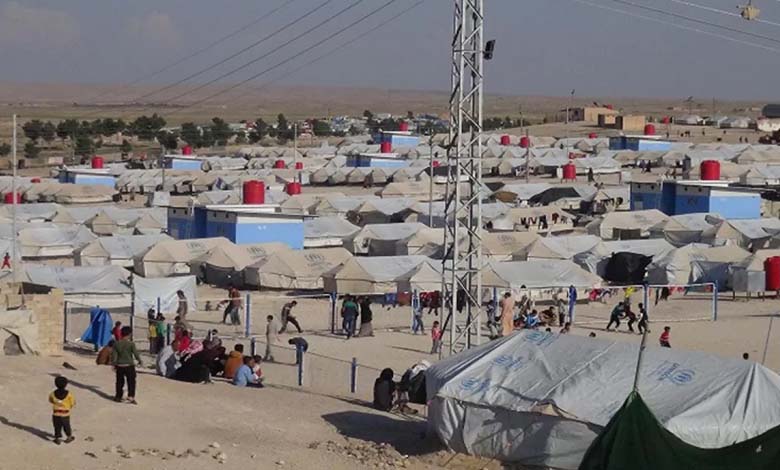UN Support for Regularizing Their Status: How Will the Iraqi Government Deal with Returnees from Al-Hol Camp?

Despite seven years having passed since Iraq declared victory over ISIS and reclaimed cities previously under its control, many problems remain. While the United Nations Development Programme (UNDP), in cooperation with several supporting agencies, has launched a project to rehabilitate 9,000 returnees from Syria’s Al-Hol camp, which houses ISIS families, the issue still requires much effort, according to Shafaq News.
-
Crimes Against Humanity and Genocide: UN Commission Presents Evidence Indicting ISIS in Iraq
-
After a series of government dismissals, fears of the return of the political crisis in Iraq
The UNDP in Iraq, the United States Agency for International Development (USAID), the Swedish International Development Cooperation Agency, and the European Union, in collaboration with the Iraqi government, announced the launch of the project “The Road Home: Community Reconciliation and Reintegration of Iraqis Returning from Al-Hol Camp in Syria.”
In a statement to Shafaq News, Arshad Al-Salihi, head of the Parliamentary Human Rights Committee, emphasized, “UN programs are crucial for rehabilitating and reintegrating the innocent members of ISIS families. At the same time, it is essential to focus on terrorism victims while returning families from Al-Hol to preserve stability and community peace, ensuring that each individual undergoes security vetting and that they are sent back to their liberated areas.”
-
Political crisis in Iraq: 3 possible scenarios
-
After the events of Geweran prison and the operations of ISIS in Iraq… Where does the organization get their money?
He further explained that “the process of returning families from Al-Hol undergoes multiple security checks to ensure that criminals are not escaping punishment. The government, through all its institutions, is working according to a clear and well-studied methodology in this regard.”
He added, “Many of those who have returned from Al-Hol refuse to go back to their original areas due to fear of tribal retaliation and revenge, as they belong to ISIS families. UN programs will play a significant role in overcoming many of these social issues.”
-
Pro-Iranian militias back ISIS in Iraq
-
Has Iraq begun to recover economically after years of crisis?
Abdullah Ali, a social researcher and expert in civil rehabilitation, explained to the same source, “The program for reintegrating returnees and enhancing social stability is a crucial step in supporting the Iraqi government in rehabilitating the families of ISIS members. The announced program will help reintegrate more than 9,000 people in the liberated provinces of Nineveh, Kirkuk, Salahuddin, and Diyala.”
He noted, “Over the past two years, Iraq has developed a plan to rehabilitate the Iraqis present in the Al-Hol camp in Syria and support their ability to reintegrate into society. It has succeeded in reintegrating about 1,230 families back into their original areas after they underwent preparatory programs.”
-
Embezzlement of funds allocated for ISIS victims reveals the extent of corruption in Iraq
-
Hundreds of ISIS women continue their strike in an Iraqi prison… What are the risks?
He emphasized that “the goal is to prevent these returnees from becoming new terrorists, particularly by stopping ISIS from smuggling many women and youths from Al-Hol to join the group in terrorist operations.”
He also warned that “dealing with the ideological and psychological aspects of female ISIS members is extremely dangerous. Over the past two years, the women in Al-Hol have committed many crimes, especially murders and assassinations of women who expressed a desire to leave extremist ideology or attempted to leave the camp through rehabilitation programs.”
-
Iraqi forces continue war against ISIS…
-
Iraq besieges ISIS… targeting terrorist leaders and elements
It is worth noting that the Iraqi government has repatriated 1,400 families from Al-Hol in six batches by the end of 2023. However, the challenge remains that most countries and governments refuse to take back their citizens, despite the presence of humanitarian cases.











